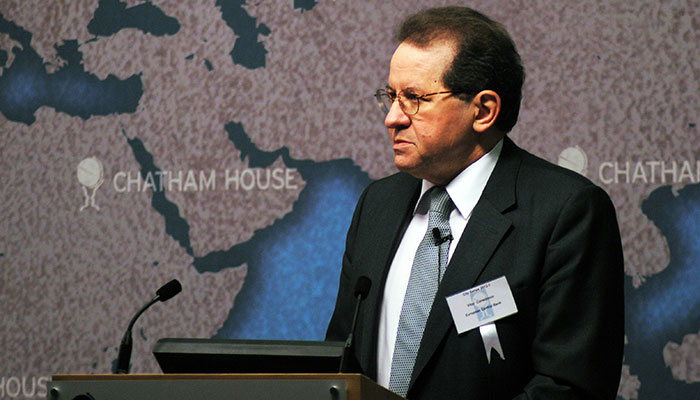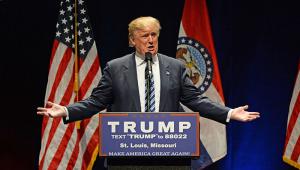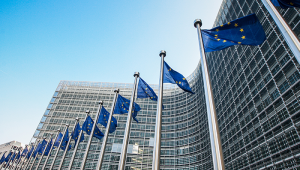web_vitor_constancio_8548463284_a950e060da_o.jpg

Vítor Constâncio, vice president of the ECB. Credit: Chatham House
Speaking at a conference in Frankfurt yesterday, Vítor Constâncio cautioned about “drawing hasty, positive conclusions” from the seemingly promising signs from the market in the immediate aftermath of the vote.
Constâncio noted the “beginning of a shift from bonds to equities” in the markets last week in anticipation of a Trump spending spree that will raise growth and the chances of an interest rate rise from the US Federal Reserve – a positive development for financial institution profitability, although not for governments looking to borrow.
But he argued that any boost to US growth will come in the context “of an ‘America first’ policy” and that the real negative effects of heightened uncertainty could come later.
“The possibility of rising protectionism – hard or soft – can substantially reduce the effect of higher growth into US imports,” he told delegates. “World trade, already quite weak, may continue to collapse, hurting all open economies dependent on exports.”
He also highlighted the negative effects already witnessed in emerging markets, where investors have flocked from assets and currencies in anticipation of a closed-off America.
Protectionist measures directed particularly against large emerging markets – China or Mexico, say – could prompt a further slowdown in global growth and instability in foreign exchange markets, he continued.
Constâncio’s outlook for the eurozone was also bleak. He described the bloc’s current growth as “far from impressive” and noted that unemployment, while falling, remains stubbornly high at more than 10%. Inflation is also “not recovering” and wage growth needs to be much higher, he added.
He did however deliver praise the ECB’s monetary stimulus package, the most controversial aspect of which is its quantitative easing programme. This will see the bank buy €80bn worth of bonds per month.
The programme was extended and increased in March 2016, and ever since, the ECB has been under pressure to disclose whether it will extend it beyond its scheduled end date of March 2017.
Constâncio’s comments yesterday indicate this is likely, since risks to the eurozone’s health, from Trump’s policies, the Brexit vote and internal strife within the European Union threaten already weak growth.
Constâncio called for deeper unity and integration to repair increasing divisions between the EU’s 28 members in the past few years. Also, he said the bloc would need to rely more on its domestic market to underpin growth, if the union was to face increased global uncertainty.
The euro area will also need to develop a joint strategy to face challenges with bank profitability, he added.
“In this, as in other domains, Europe must endeavour to work together to face a more challenging world that threatens European values of open and tolerant societies,” he concluded.













